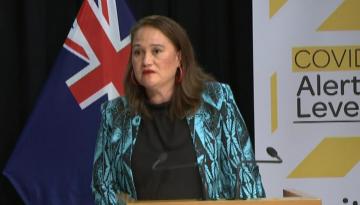The Government announced a new tax-free weekly payment for those who lost their job due to COVID-19 on Monday, but how does it compare to a weekly Jobseeker benefit or the minimum wage?
The new Income Relief Payment covers a 12-week period and supports full and part-time workers, and Finance Minister Grant Robertson and Social Development Minister Carmel Sepuloni expect the package to cost the Government about $570 million.
Eligible full-time workers who normally work 30 or more hours each week will receive $490 per week, or $5880 across the full 12 weeks. Part-time workers will receive $250 per week, which adds up to $3000 total.
One of the requirements to receive the payment is a person must be available for, and actively seeking, work opportunities and be taking "appropriate steps" towards gaining new employment, and looking for opportunities for re-deployment and training. For those people who do not manage to find work during the 12 weeks receiving the payment, they will have to go onto the Jobseeker benefit.
The weekly payment amount under this benefit differs depending on whether someone has children, if they're married, how old they are, and more. Benefits are also taxed, whereas the Income Relief Payment isn't.
For someone who doesn't have children, is single and 25 years old or over, they receive $281.08 before tax per week, according to the Work and Income website. In the Jobseeker Support bracket for people without children, this is the highest amount one person can be paid.
Depending on the hours a person in this situation worked, they could either see an increase of $31.08 if they were a part-time employee who needed to move from the Income Relief Payment to the benefit, or a decrease of $208.92 if they were a full-time worker.
Comparatively, a sole parent regardless of their age receives $431.91 before tax per week on the Jobseeker benefit - a decrease of $58.09 compared with the full-time Income Relief Payment.
Finally, the minimum wage is $18.90 per hour, which, if someone works 40 hours per week, comes to $756 before tax. Between this amount and the weekly Income Relief Payments, it has the most significant difference out of the examples here - it's $266 between the two full-time payment amounts.
If someone on minimum wage works 20 hours per week, it comes to $378 before tax. A person earning this would see a decrease of $128 if they started receiving Income Relief Payments as a part-time employee.


